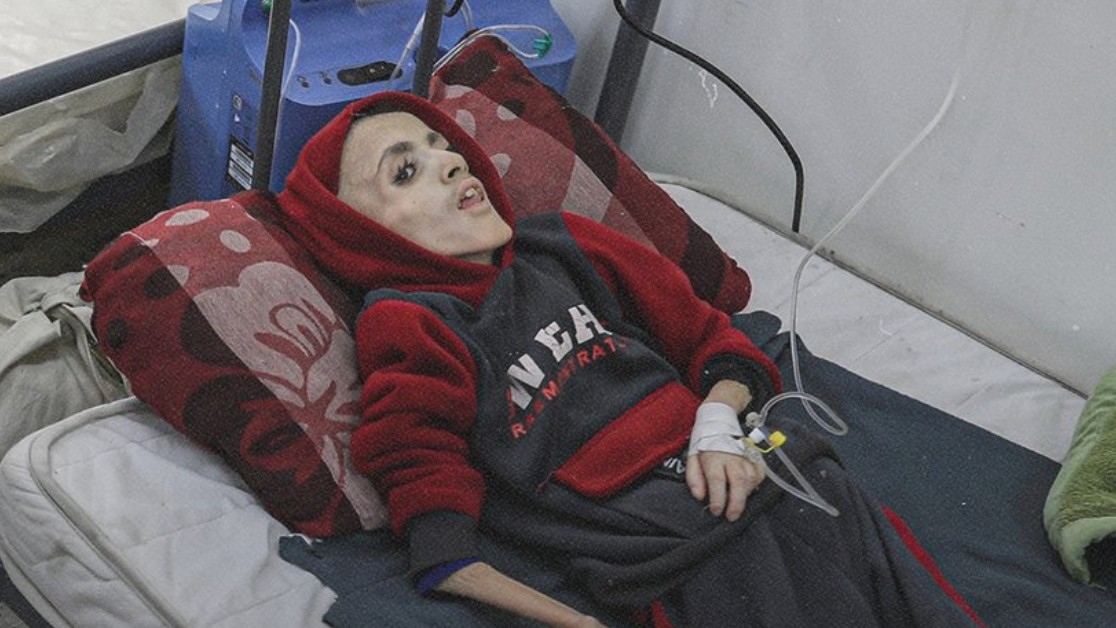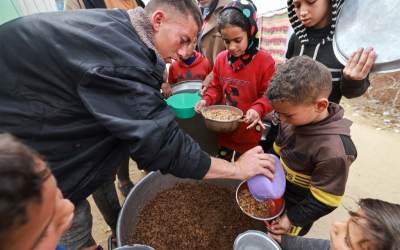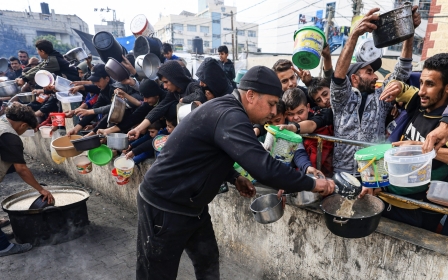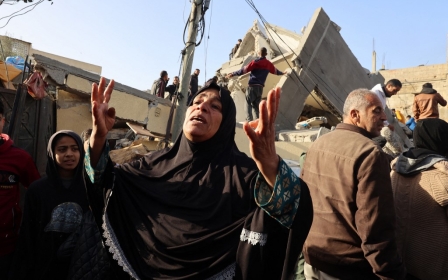War on Gaza: Palestinian child dies from hunger and malnutrition in Gaza

A child in Gaza, identified as Yazan al-Kafarna, is one of the latest to die of hunger and malnutrition in the besieged enclave since the start of the war on 7 October.
According to local media reports, Kafarna died in the al-Najjar Hospital in Rafah on Monday, bringing the total number of children who have died from malnutrition since October to 16.
Images and videos shared of Kafarna from 2 March show him lying on a hospital bed with sunken cheeks.
In one video, his father shows a photo of his son before the war looking healthy.
“Before the war he was healthy, he had access to all the food and medical care he needed. When the war started, everything was cut off… this happened to him from the lack of nutrition and him not having important foods,” he said, adding that the photo of him was taken just a week before the war started.
New MEE newsletter: Jerusalem Dispatch
Sign up to get the latest insights and analysis on Israel-Palestine, alongside Turkey Unpacked and other MEE newsletters
Kafarana’s family were displaced from Beit Hanoun in Gaza to Rafah in the south.
Family members told Al Jazeera Arabic in an interview that Kafarna reached a stage where he was surviving on just a few morsels of bread.
“He was living on scraps of bread we found with great difficulty and brought at extremely high costs. If we couldn't find food, we would give him sugar just so he could stay alive. The main reason he has reached a point where he just looks like bones, is a lack of nutrition,” one family member, Mohammed al-Kafarna said.
According to Kafarna, Yazan reached a point where he needed specific food and nutrients to keep him alive after losing so much of his body weight, however, the family could not get hold of anything they required.
Yazan had suffered from cerebral palsy from birth, meaning he had to follow a special diet and take supplements. However, his family said that since the start of the war, he has not had access to any of these things.
Journalists in Gaza have documented the death of other children, as a result of malnutrition and hunger.
'War of starvation'
Hossam Shabat, a journalist in Gaza, said that a young girl died after not having access to milk, while another, identified as Heba Ziadeh died in the Kamal Adwan hospital in northern Gaza from dehydration and malnutrition.
Last week, the spokesperson for the Ministry of Health in Gaza, Ashraf al-Qudra, said that the “Israeli occupation is waging a new war on the residents of Gaza, a war of starvation,” adding that the number of people dying of hunger and malnutrition was increasing, especially children.

He explained that the health system in northern Gaza is now completely unable to meet the needs of the besieged territory, particularly after the Kamal Adwan hospital was captured by Israeli forces.
Gaza is on the brink of famine, the head of the United Nations Agency for Palestinian Refugees (Unrwa) warned in late February.
“The last time Unwra was able to deliver food aid to northern Gaza was on January 23,” Philippe Lazzarini wrote on social media.
At least 500,000 people are facing famine while nearly the entire population of Gaza, 2.3 million people, is experiencing acute food shortage, figures from the UN Office for the Coordination of Humanitarian Affairs show.
In late February, at least two babies died of malnutrition and dehydration in Gaza.
Aid organisations have warned that Israel's denial of food and water to the Palestinian enclave may amount to a crime against humanity.
Randa Ghazy, of NGO Save the Children, said Gaza was witnessing "the worst level of malnutrition worldwide".
"Pregnant women are not receiving the nutrition and healthcare they need, making them more susceptible to disease and increasing risks of death during childbirth," she told Middle East Eye.
This article is available in French on Middle East Eye French edition.
Middle East Eye delivers independent and unrivalled coverage and analysis of the Middle East, North Africa and beyond. To learn more about republishing this content and the associated fees, please fill out this form. More about MEE can be found here.




